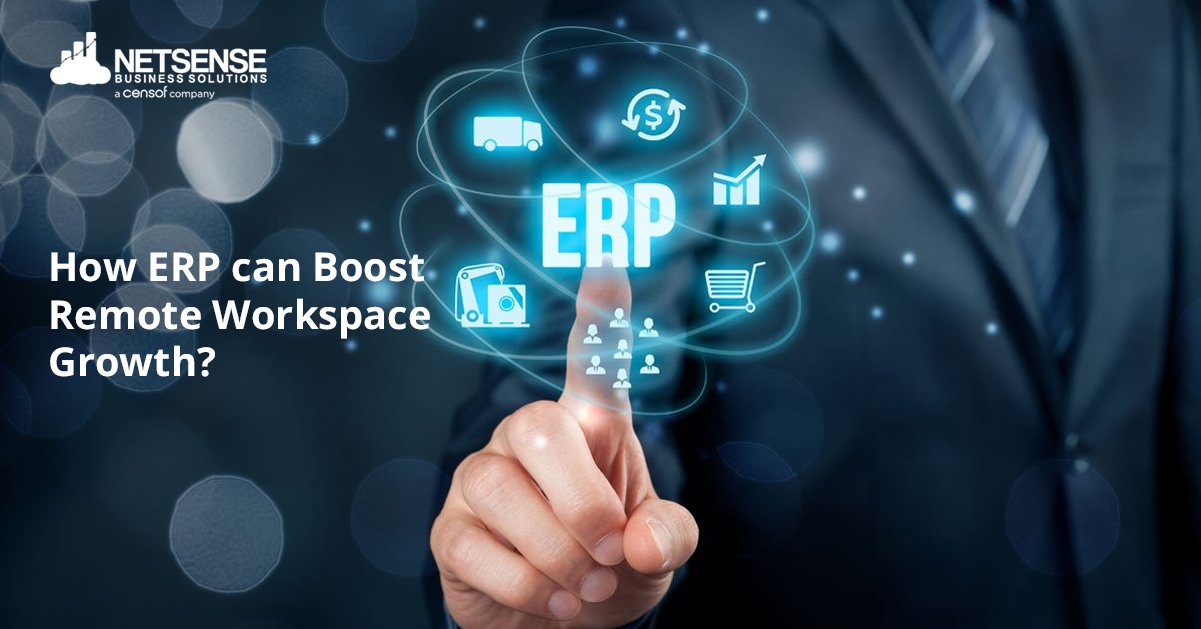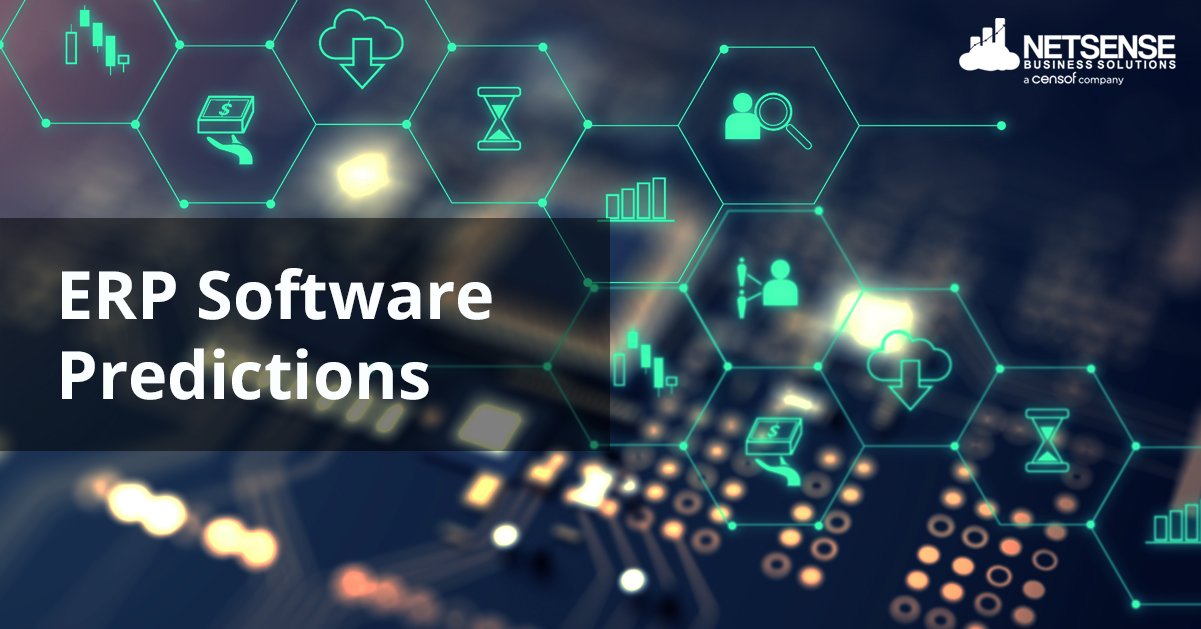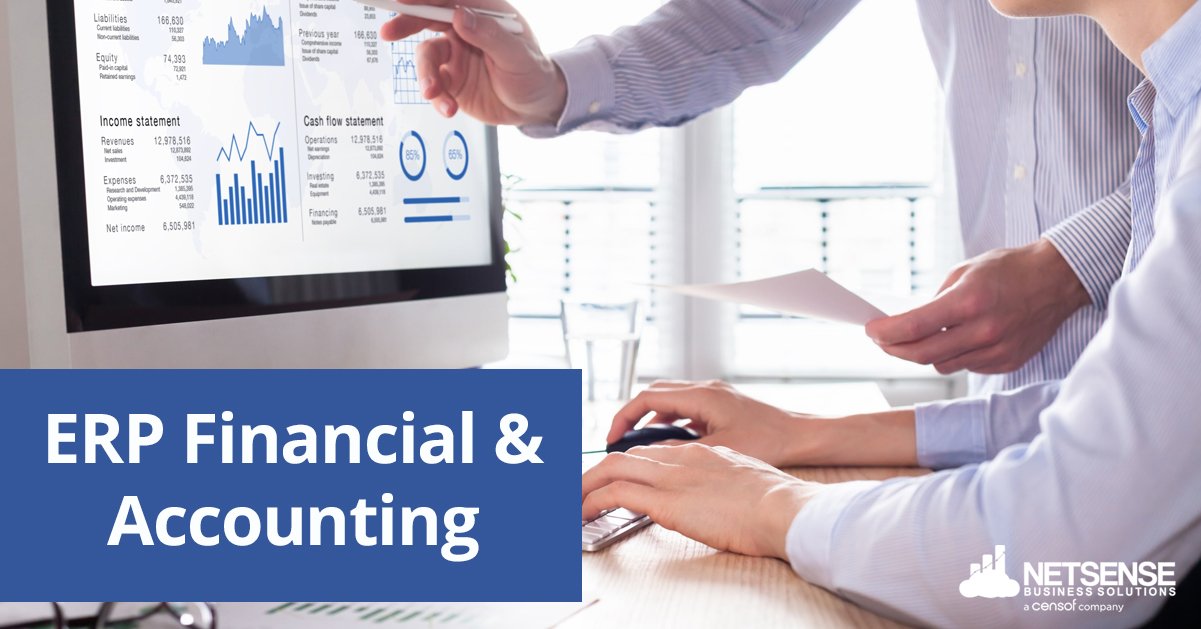With the coronavirus pandemic reeling all over the world, a shutdown has resulted and now many companies have adopted a remote work ecosystem to flatten the curve and ensure the safety of their workforce. While telecommuting has been around for years among certain U.S. workers, companies still lack a reliable remote work program that leads to communication breakdown, reporting delays, a decline in productivity, more cybersecurity risks, and much more. In order to ensure that your team members work productively from home, it is necessary to establish clear guidelines that must include daily working hours, task submission process, task updates, and so on. A cloud-based ERP (Enterprise Resource Planning) system can greatly help to facilitate all processes and departments within your company, including finance, sales, production, distribution, customer relations, and even HR departments from anywhere, anytime. ERP system ensures comprehensive work-from-home management that allows teams to work cohesively, even when they aren’t in a traditional office environment. For a completely distributed workforce, we’d like to share a few tips to help companies enhance the functionality of ERP in a remote environment. Empower Remote Work and Efficiency It is essential to ensure that everything from remote-work technologies to workflows and training should be in place. Up-to-date remote-work guidelines will help to improve workforce productivity and business continuity. In order to preserve efficiency, businesses should collaborate with internal and external resources within ERP software and then, train the workforce on new processes and security protocols. Choose Cloud-based ERP Over On-Premise Systems It is vital that key employees should be able to access ERP software via a web-based portal or VPN while making sure configurations for remote work be up to date and tested. Always opt for cloud-based ERP rather than the on-premise system as they are designed to work remotely, also provide immediate scalability and flexibility for potential business needs. Automate Business Processes Organisations should focus on automating manual business practices and workflows to enhance operational productivity in a remote work environment. Say ‘Goodbye’ to the scattered manual spreadsheets and go for ERP solution powered with Artificial Intelligence (AI) to automate multiple workflows such as order, invoice processing, reporting, shipping, warehouse operations, and forecasting. Anticipate Fluctuations in Accounting and Financial Filings Due to the devastating economic effect of COVID-19, companies need to prepare themselves for new accounting rules, balance sheets, and financial filings. ERP software allows businesses to create ledger, fixed asset management, and configure new reporting procedures and accounting policies. Enable Accounts Receivable Processes It could be daunting to connect with entities that have not paid their invoices or deposited the payments. ERP with accounts receivable (AR) modules can stabilise the cash flow and allow companies to send out dunning notes, identify ideal payment terms, and monitor payments. Moreover, focusing on improved communications with customers, offering benefits for early payments, and empowering payment hold may yield better AR outcomes. Streamline Remote Financial Closes The technological obstacles, disrupted systems, and unfamiliar procedures can add time and complications to financial closes. ERP comes with a set of tools and capabilities that can help to remotely monitor, manage, and consolidate close operations. How Acumatica and Netsense Allow Companies to Stay Connected When Working Remotely? In order to overcome challenges and bring great opportunities to the table, we highly suggest organisations stay connected even in the remote environment through online meetings, collaboration rules, and maintain strong connections with co-workers in different geographical locations. In an era of cloud ERP, we still see many SMEs running on ledgers, spreadsheets, and disconnected accounting system, which only results in redundant or inconsistent data. Make no mistake further, it’s time to opt for Acumatica cloud-based ERP solution to connect with your stakeholders, partners, employees, suppliers, and customers, regardless of the location. ERP system allow workforce to access accurate information in real-time, helping managers to delegate tasks to team members, further team members will give updates on milestones achieved, and you can track progress from anywhere. At Netsense, we strive to offer advanced Acumatica ERP system that will be highly transformative for all types and sizes of businesses, helping to meet your current and future business needs. If you’re all set to become a well-connected, agile, and take on the new challenges for better future profitability, Acumatica ERP software is a viable option for you. We’ve enriched countless businesses and would be glad to do the same for you. Feel free to reach out to our experts today!
Since the level of competition is rapidly increasing, the only way to ease your business processes is to modernise the module or system. Integrating an ERP (Enterprise Resource Planning) system into your business workflows could be a viable option to optimise production runs, manage inventory, and solve operational issues to meet the ever-changing industry needs. The addition of new-generation Artificial Intelligence (AI) technology into ERP software has transformed the way how companies operate and the volume to data managed, allowing businesses to make informed decisions. With the fast-pace at which technology is changing, ERP is undergoing a wide range of transformations and you need to keep up with the latest trends to seamlessly consolidate advanced functionalities. 94% of enterprises consider cloud-based ERP as a flexible and safe option, reveals Flexera. This translates to ERP is already a big deal and is expected to grow in the foreseeable future. So if you already have an ERP software or are planning to get one for your business processes, here are some trends you should know about that will dominate the landscape of ERP in the future: – Increase in the Popularity of ERP Systems Modern businesses cannot be able to survive in the long run through obsolete technologies. As new generations of workforce enter among the industries, the users of ERP systems will very likely rise drastically for exceptional customer experience.As per the report by Forrester, the personalised ERP market will cross the US $ 15 billion by 2020, which means businesses will shift to personalisation rather than customisation to manage workflows effortlessly. Future ERP will Future Blockchain Blockchain is proved to be the most secure technology to carry out transactions. After making its way through various enterprise software, it will become a standard component for ERP as well. At present, many companies have already started to integrate blockchain into an ERP system to facilitate shipping and tracking operations. Supply chain management and customer acquisition will become more nascent with this technology integration. ERP Users will shift to Cloud According to the recent research of CenturyLink and Statista, the cloud computing market is predicted to reach the US $411 Billion by 2020. The cloud computing market has matured tremendously but there are still barriers exist however, in 2020, more and more ERP users are likely to switch to the cloud which will hold significance for SMEs.With cloud-based ERP systems, there is no need to maintain in-house infrastructure. Users can enjoy the advantage of a full-fledged system with limited human resources. Artificial Intelligence is Going to Dominate Artificial Intelligence (AI) is already ruling all facets of business processes. Integrating this technology into ERP will help companies to achieve high levels of automation and eliminate human efforts across several functions. The concept of RPA or Robotic Process Automation is making rounds all over which will further help businesses reallocate wasteful human resources to more efficient avenues.Chatbots is another addition to artificial intelligence that will reduce operational costs and reallocation of funds will take place through the automation approach. Mobility and Wearable Technology to Lead While industry experts emphasise more on SaaS and cloud, mobility will be a key component to turn dominant in the ERP sphere by 2020. Ranging from management staff to back-office workforce, and store personnel, everyone is predicted to use ERP system through mobile devices instead of desktops. As unparalleled flexibility via mobile ERP is about to rule, it’s high to brace yourself for a new era with wearables and third-party applications for effective synchronisation. As ERP systems will change, the current features will go through major updates and merge with artificial intelligence, blockchain, IoT-enabled devices, and other technologies that will allow companies to make smart business decisions. Therefore, companies shifting to ERP need to be flexible and agile to adapt to the new changes and improve business workflows comprehensively. Have any queries regarding enterprise management solutions? Get in touch with our experts to attain a clear understanding and solve your business challenges.
Scattered spreadsheets are no longer a viable option for synchronising journal entries, creating transactions and reporting, especially when demands and requirements of businesses are growing immensely. Unification and automation capabilities are the two core aspects to add value to your business and this is where Enterprise Resource Planning (ERP) system never fails to impress. With ERP integrated with financial and accounting functionality, the operators can seamlessly monitor all transactions with real-time updates and alert sales managers if any order is produced. ERP financial system works across all departments in the company, allowing you to make better-informed decisions and increase operational productivity. Are you still wondering would it make more sense to invest in an ERP solution that already comes with financial and accounting modules rather than a standalone accounting software? Let’s find out! The Value of ERP Accounting Software Integration With standalone accounting software, manufacturers can standardise and simplify repetitive tasks, ranging from journal entries to reviewing orders, and scheduling. However, the ERP system with financial modules can stretch your experience beyond the accounting department. This is a complete solution to attain visibility into the way your business functions in a centralised platform. It helps you gain useful insights into critical areas for not just accounting but also in sales, warehouse, marketing, and human resources. It allows operators to accumulate financial data and then drive reports with more accuracy to external resources through various functionalities such as accounts payable, general ledger, budgeting, and more. Without its integrated functionality, you cannot expect to effectively conduct more advanced business processes such as automatic reordering points. A standalone accounting system requires data inputs from various sources but ERP-based accounting software can automatically combine multiple data sources, including manufacturing management, logistics, HR, and so on. Top Features of ERP Finance and Accounting Modules Profit Tracking Evaluating your business profitability will show you the areas where profits are generating while determining the return on investment for any purchase. It will also help predict future profits based on historical costs and sales information. Its profit tracking capabilities will help you to get a real-time view of your financial resources and overall financial stability of the company. General Ledger Management A general ledger gives a complete record of all financial transactions and nothing could be better than the fact that this functionality is integrated with ERP systems. Having every financial information in alignment can help you track numerous tasks such as liabilities, capital accounts, assets, and expenses and make filing tax returns easier. Accounts Payable This accounts payable feature combines your payable data with the purchasing system so you can examine and control the flow of cash. Automating these tasks with an ERP solution will help you save a lot of money and time as well as eliminate human errors. In simple words, this feature will let you know how much exactly you owe and when it is due, so you will never face delays again. Fixed Asset Management This feature helps to manage and monitor all of your company’s tangible assets like manufacturing equipment, office space, etc. It will give you better visibility in terms of depreciation calculation, tax implications, costs, usage, and maintenance. Tracking your assets will avoid paying taxes on items that you have removed and also bring significant sales tax savings. Risk Management It is vital to forecast, analyse, and manage crises to control risks and eliminate concerns like security, legal liabilities, and reputational risks. From a financial aspect, it can help you to track any cash flowing in and out of your business. This will also ensure you have enough cash to meet accounts payable if a customer fails to pay. How Acumatica ERP for Financial Management Can Support Your Business Needs? Acumatica ERP financial management system is designed with best-in-class accounting suite, integrated with Customer Relationship Management (CRM), manufacturing management, distribution, field service, and project accounting capabilities. It is a power-packed solution that is simple enough for both SMEs as well as multi-nationals, supporting the business needs at the present and in the future. You can close your books quickly and easily with Acumatica ERP timeless automation and workflow capabilities. It can manage various entities such as automated reporting, cash management, and consolidation. It allows you to gain accurate, regular visibility into your business operations with financial reports and dashboards that access the centralised database. You can reach global markets effectively with cloud multi-currency, multi-language, and multi-company functionalities that work locally and internationally. At Netsense, we offer advanced accounting and financial modules in our Acumatica ERP software, so now say ‘Goodbye’ to the time-consuming consolidation of cash flow statements as you can easily generate automated and personalised reports with our complete ERP solution. You can manage a full suite of accounting functions to monitor regular financial operations and generate timely financial statements. Let us help you to manage all your accounting and financial needs with our full-fledged Acumatica ERP system. Feel free to speak to our experts today!
- 1
- 2


